
ONLINE DISCUSSIONS
Vortex has partnered with the Climbing Business Journal to create and publish educational content for routesetters & managers
Take a look….
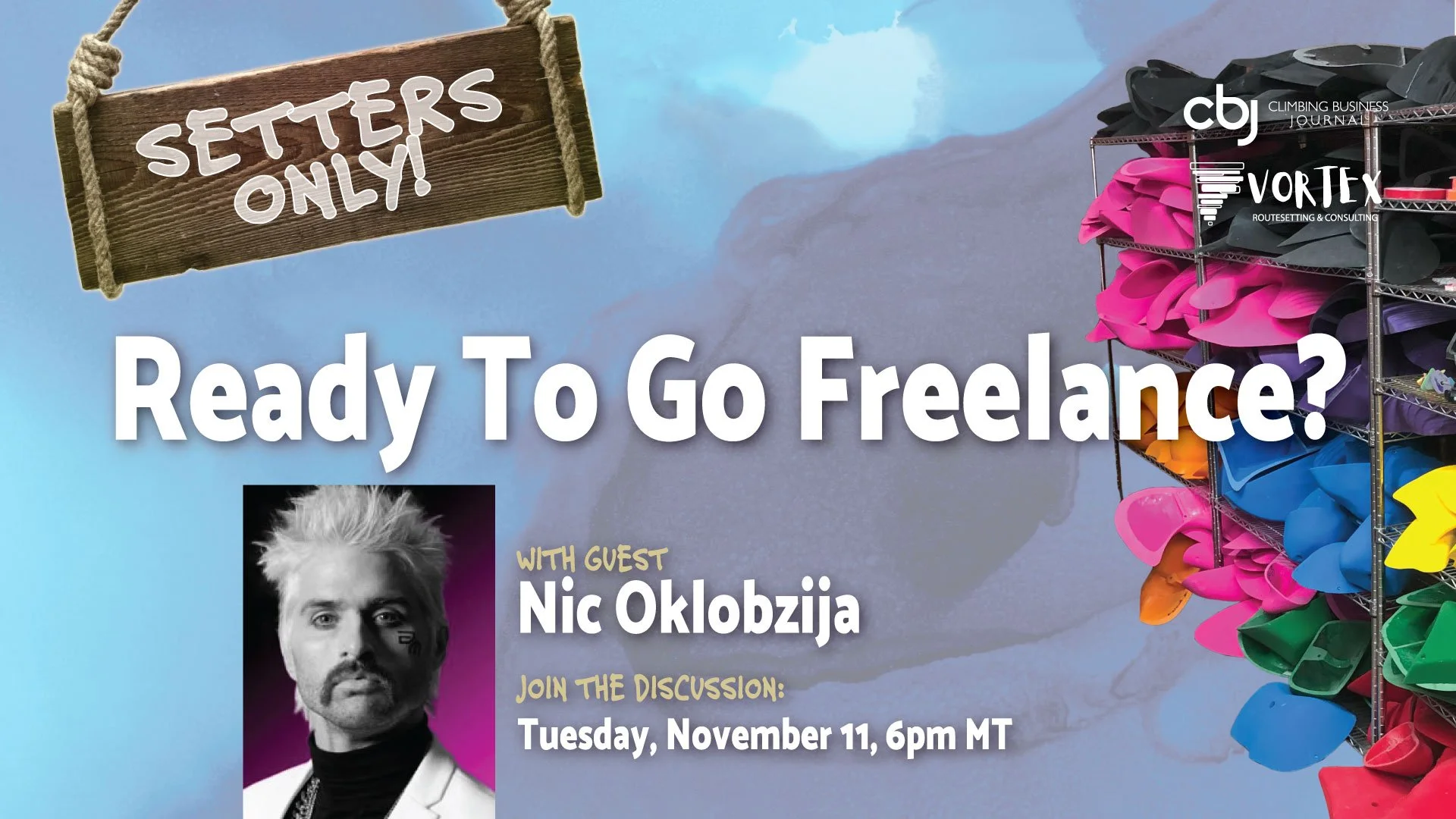
Ready To Go Freelance?
Join us as we talk with Nic Oklobzija about the complex landscape surrounding freelance routesetting in the U.S. What do routesetters need to know? What facets of the industry need to be addressed—and how—before it can be a reality for more setters?
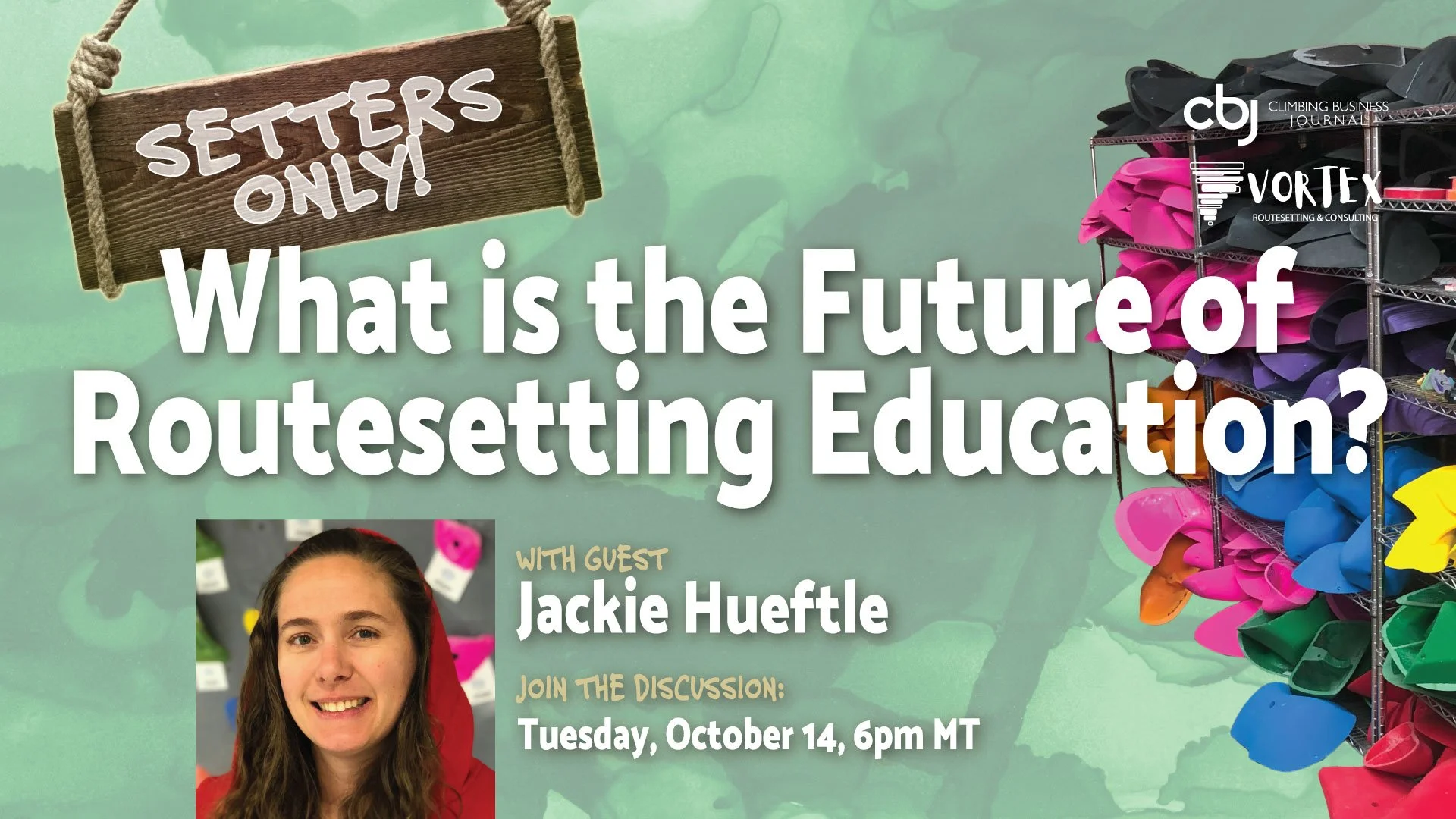
What is the Future of Routesetting Education?
Jackie Hueftle has been shaping the direction of routesetting education for decades, through direct mentorship, teaching and hosting clinics, authoring articles and educational materials, and founding the CWA Routesetting Committee. Join us as we chat with her about the best ways to educate ourselves and our teams.
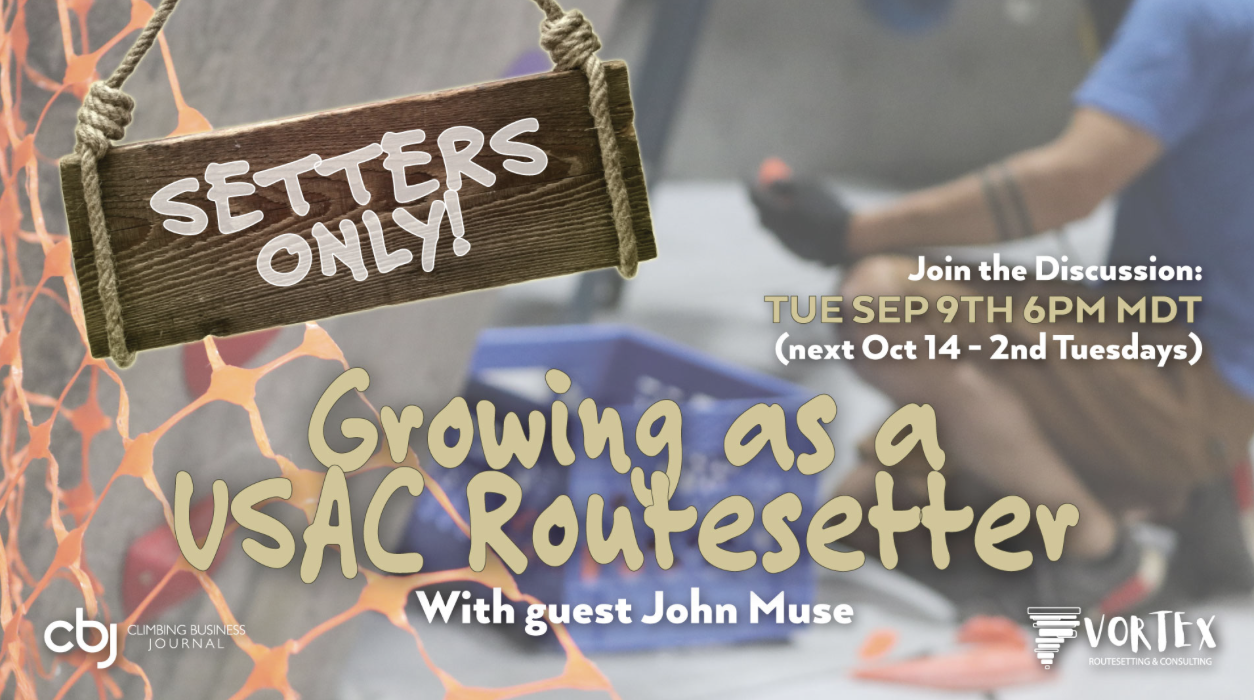
Growing as a USAC Routesetter
Join us to talk with John Muse, a man who knows the world of competition setting inside and out! We’ll chat about what it takes to be successful within USAC, and how we can grow ourselves to meet the growing needs of competitive climbing in the U.S.
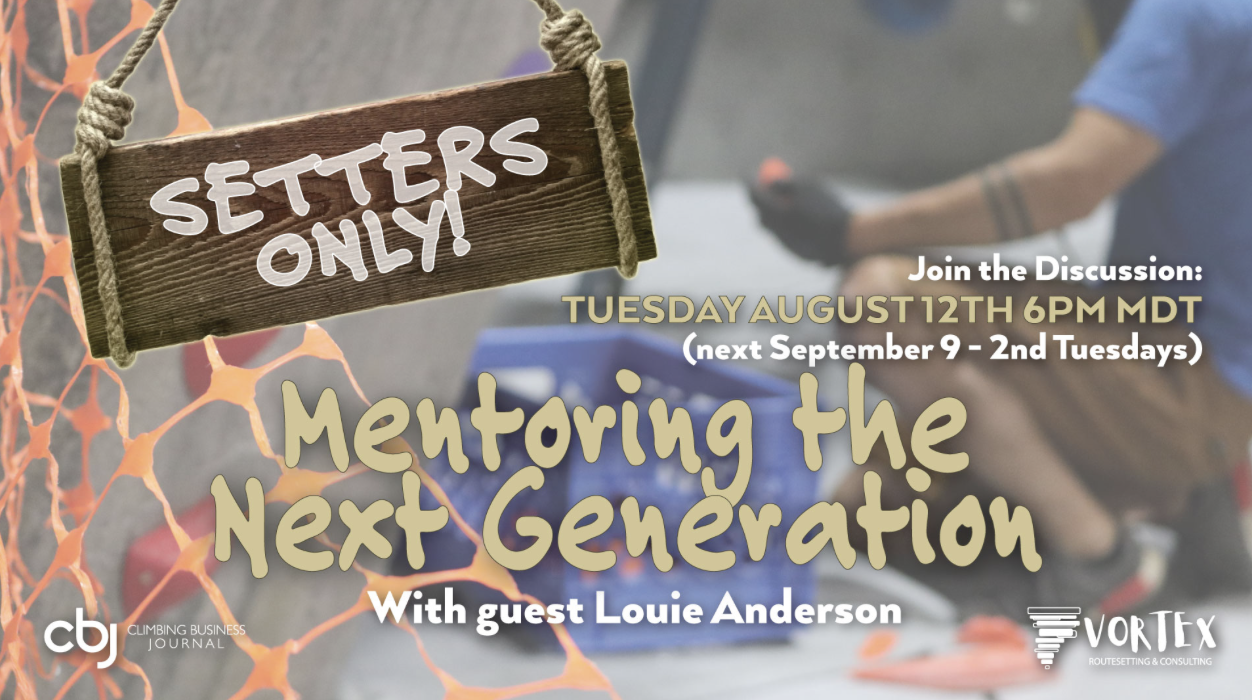
Mentoring the Next Generation
Mentorship shouldn’t stop the moment we grow past the entry-level routesetting position, though. Join us to talk with Louie Anderson, who has mentored innumerable routesetters in all stages of their careers. We’ll talk about what it means to inspire future generations of routesetters, and how best to keep growing the industry we love.

How to Stay Healthy and Injury Free as a Career Routesetter
Join us as we talk with Tyler Nelson about the common hurdles preventing career routesetters from pursuing their own climbing goals, as well as ways for both individual routesetters and the industry to move past them.
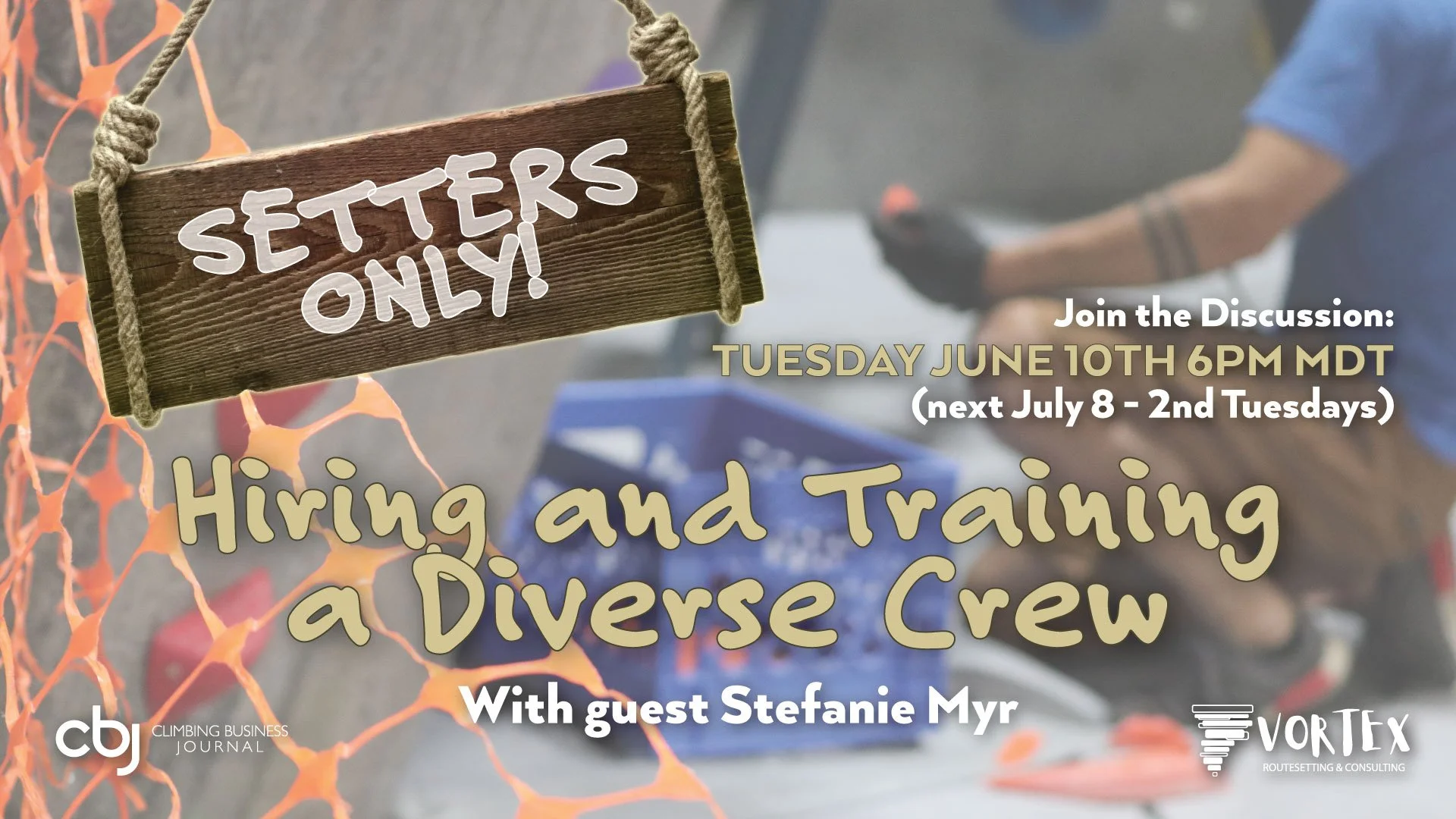
Building the Dream Team: Hiring and Training a Diverse Crew
This month, we’re talking with Stefanie Myr about the importance of a well-balanced team, and how those in routesetting leadership positions can be proactive in building one.
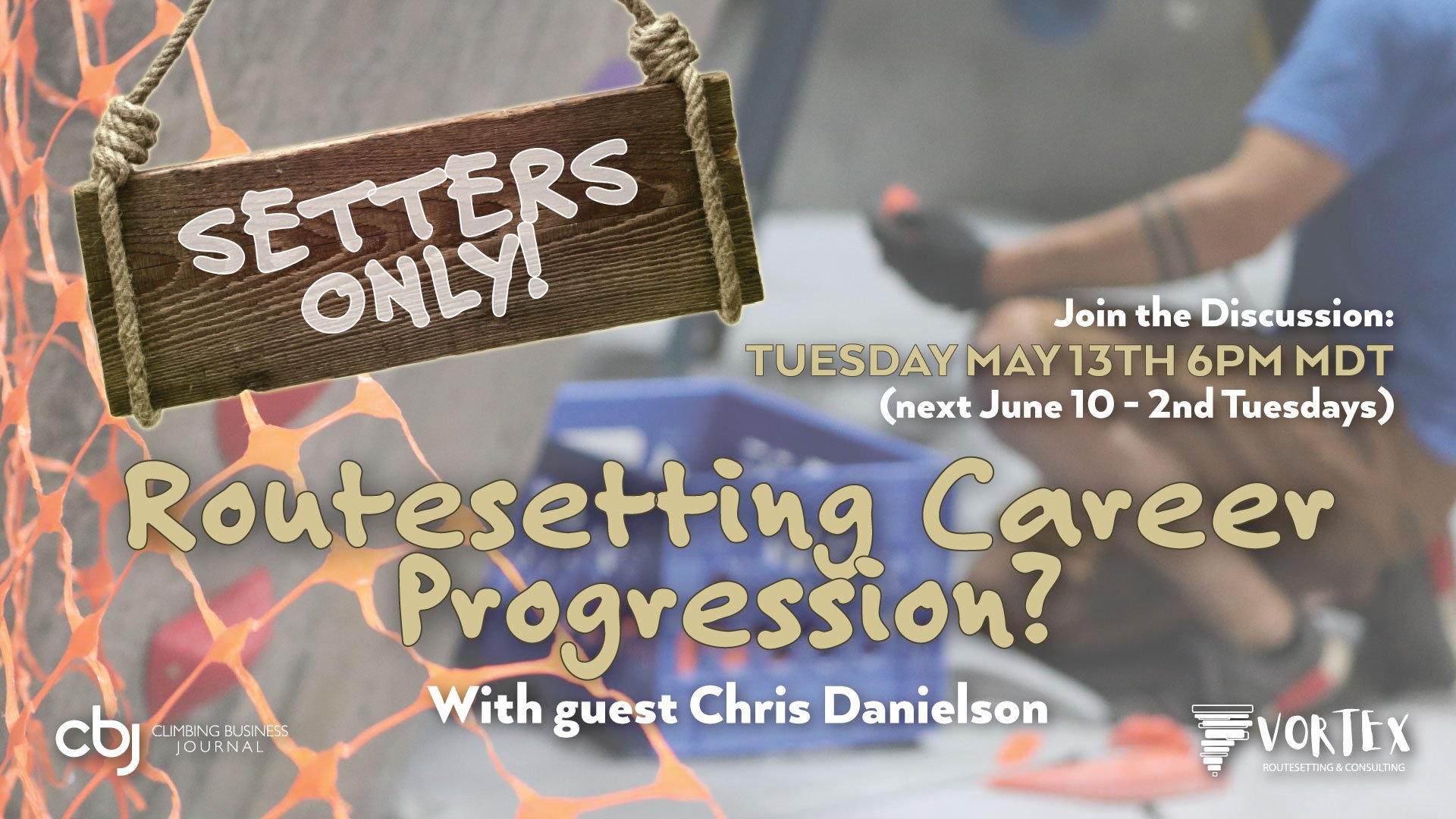
Routesetting Career Progression?
This month, we’re talking with Chris Danielson to hear how things were “back in my day…” compared to the career progression that current or future generations of routesetters have come to expect.

Competition Routesetting and the Modern Gym
There are productive ways to talk about grades, both within your routesetting teams and with your community at large. Join us as we chat with Flannery Shay-Nemirow and Tonde Katiyo about how best to approach this juggernaut of a topic in a way that sets us up for success rather than strife.

Workload: How many boulders do YOU set each day?
This month we’re talking numbers with Ward Byrum. Defining your gym’s routesetting workload is critical for developing your program, affecting everything from rotation and density to how many hands you need on the crew.

Does anyone REALLY know what grades are?
This month we’re talking numbers with Ward Byrum. Defining your gym’s routesetting workload is critical for developing your program, affecting everything from rotation and density to how many hands you need on the crew.

Getting Hired to Aging Out: How Long Can You Turn That Wrench?
This month we’re talking with Kenny Benson and Morgan Young about what it means to be a professional routesetter, and how we can keep moving forward.

Mission Im(possible)? Training to Climb Harder as a Full-Time Routesetter
Join us as we talk with Jess West and Rocco Bocchicchio about common hurdles preventing career routesetters from pursuing their own climbing goals, as well as ways for both individual routesetters and the industry at large to move past those hurdles.

Event Routesetting – Comps, Leagues, Holidays & More
Is your routesetting plan ready for your next event?
No matter what your event is, we have some take-home information to help. Join us to discuss how to approach event routesetting from an organizational standpoint.

Your Sustainable Routesetting Program
Is Your Routesetting Program Built to Last?
With the climbing industry continuing to expand, it's increasingly important to design a routesetting program that meets your gym's unique needs and keeps you competitive. We will discuss ways to attract and retain talent while being mindful of budgets, as well as structuring a program in a way that reflects the priorities of your community and brand. Bring your questions and perspective, as this will be a discussion-filled webinar.

Setting Consultation, Education Bottlenecks, and Data
Today’s guests are Foxman McCarthy-James and Justin Wright. Foxman is the Head Setter at Alta Climbing & Fitness and Alta Boulders in Arizona, while Justin is the Director of Routesetting at Edgeworks Climbing & Fitness in Washington. Between the two, they have over 25 years of setting experience and even more climbing experience. Together, they cofounded Vortex Routesetting, a company that provides setter development and training, competition management, and consultations. In this wide-ranging conversation, Fox, Justin and I talk about the rise in demand for setting consultations, the bottlenecks of setting education, and the numbers behind the scenes of the setting trade, from pay and workload to setter professional development. Justin and Fox offer their expertise and insights, demonstrating how all of those trends are more interlinked than perhaps previously thought.


